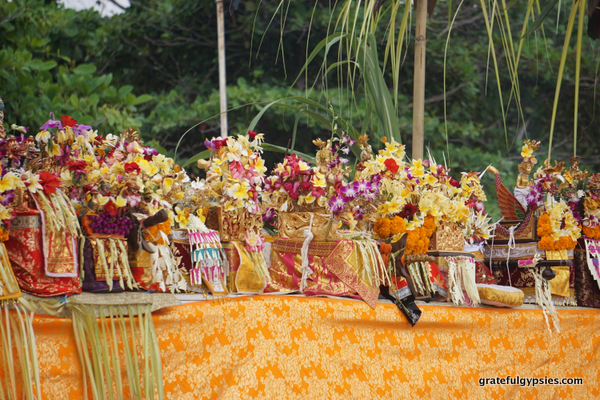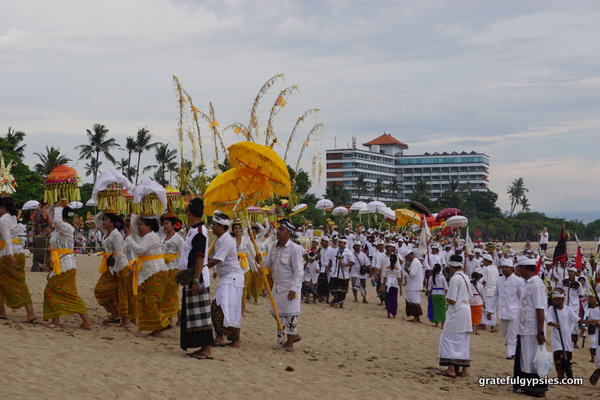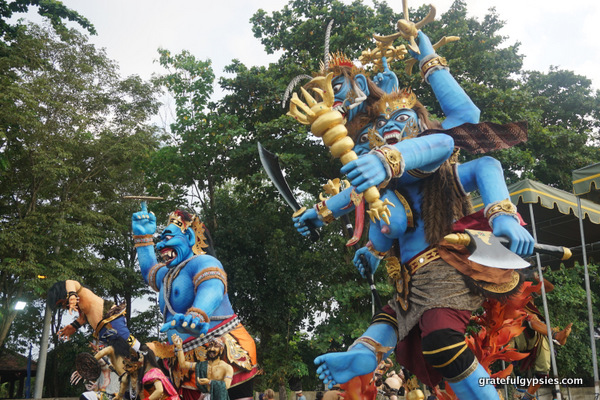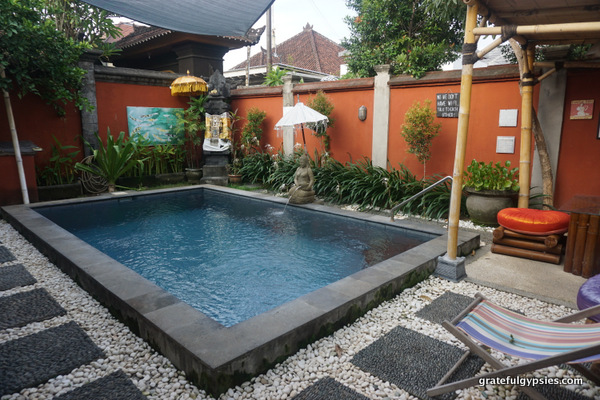Hari Raya Nyepi Posted by sasha on Mar 12, 2018 in Uncategorized
Hari Raya Nyepi is the Balinese New Year, which is also known as the Day of Silence. This is because the entire island shuts down for a day of meditation, prayer, and reflection. There are lots of ceremonies in the lead-up to Nyepi, including the exciting ogoh-ogoh parades. Nyepi is on a different day every year, as it falls on the first new moon in March. This year, Nyepi is on March 17. We have a great guide to Nyepi in English so you can learn all about the holiday. This post is all about learning some Indonesian. Read on for some details about Nyepi in Indonesian with English translations.
Nyepi adalah hari raya Hindu yang dirayakan setiap tahun di Bali.
Nyepi is a Hindu holiday celebrated every year in Bali.
Nyepi berasal dari kata “sepi.”
Nyepi comes from the word “quiet.”
Sebelum Hari Raya Nyepi, terdapat beberapa rangkaian upacara yang dilakukan umat Hindu, seperti upacara Melasti.
Before Nyepi Day, there are several ceremonies performed by Hindus, such as the Melasti ceremony.
Pada hari tersebut, segala sarana persembahyangan yang ada di Pura diarak ke pantai atau danau, karena laut atau danau adalah sumber air suci.
On that day, all tools of worship from the temple are paraded to the beach or lake, because the sea or lake is the source of holy water.
Di Bali, sehari sebelum Nyepi biasanya dimeriahkan dengan pawai ogoh-ogoh.
In Bail, the day before Nyepi is usually enlivened by an ogoh-ogoh parade.
Ogoh-ogoh adalah karya seni patung dalam kebudayaan Bali.
Ogoh-ogoh is a sculpture in Balinese culture.
Dalam fungsi utamanya, Ogoh-ogoh sebagai representasi Bhuta Kala.
In its main function, ogoh-ogoh represent Bhuta Kala.
Tidak seperti perayaan Tahun Baru barat, Tahun Baru di Bali dimulai dengan menyepi.
Unlike western New Year celebrations, the New Year in Bali begins with solitude.
Pada hari ini umat Hindu melaksanakan “Catur Brata” yang terdiri dari amati geni (tidak menggunakan api), amati karya (tidak bekerja), amati lelungan (tidak bepergian), dan amati lelanguan (tidak mendengarkan hiburan).
On this day Hindus carry out “Catur Brata” consisting of observing amati geni (not using fire), amati karya (not working), amati lelungan (not traveling), and amati lelanguan (no entertainment).
While many tourists choose to jump over to the Gili Islands during Nyepi so as to avoid being stuck in their hotel during the Day of Silence, I’d say it’s well worth it to spend the festival in Bali. Sure, you have to stay in your hotel for an entire day, but you get to see the incredible ogoh-ogoh parades the day before. If you’re in Bali this week, I hope you enjoy the festivities and have a peaceful day of reflection after all of the madness!

Build vocabulary, practice pronunciation, and more with Transparent Language Online. Available anytime, anywhere, on any device.







